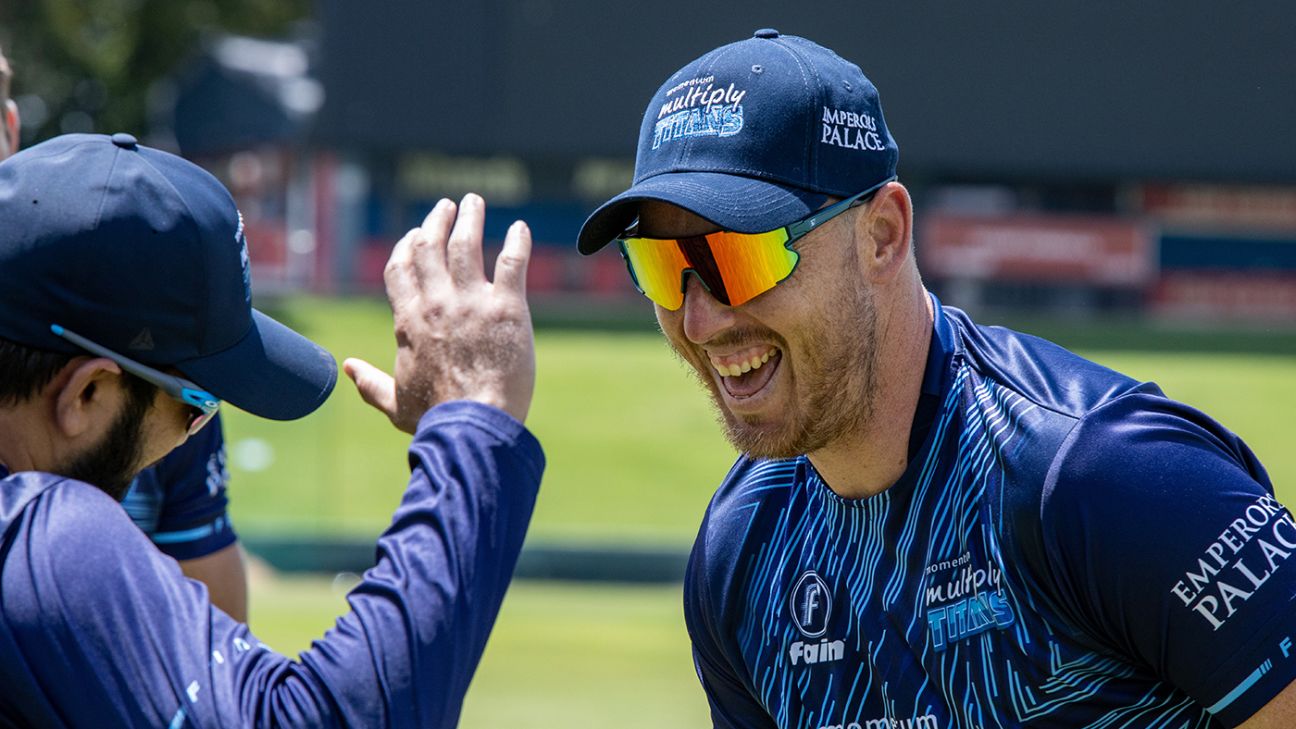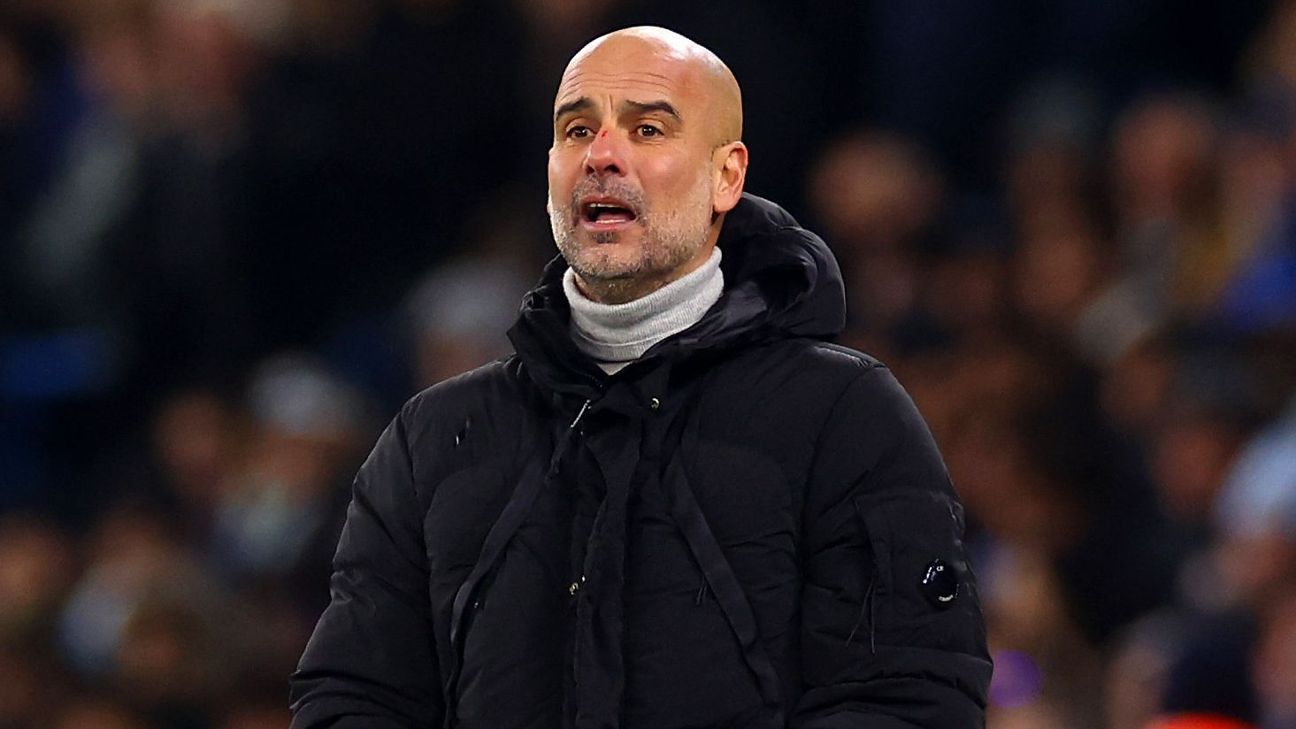
Kyle Abbott has no immediate plans to push for an international return for South Africa and aims to use his stint in the country's domestic game to retrieve the competitive edge he lost from almost a year out of action.
Abbott, who played 11 Tests for South Africa before signing a Kolpak deal with Hamsphire, has made himself available for the Centurion-based Titans franchise for the rest of the season. He will play in the One-Day Cup, which starts on Saturday, January 9, and could also feature in up to three rounds of first-class cricket and the T20 Challenge. Then, he will head back to Southampton for the first of two years as an overseas player, a status he has transitioned to after the end of the United Kingdom's transition period with the European Union put an end to Kolpak registrations.
Though Abbott is eligible to play for South Africa, and he did not rule out the possibility of a return, he indicated that he first wants to find his form. "At the moment, [international cricket] is not in my immediate view. I had a very tough 2020 not playing cricket. I need to get back into the space where I was 18 or 15 months ago," Abbott said, from the biosecure environment in Potchefstroom where the One-Day Cup will be played.
"My objective is to get back playing professionally and get back to the level that I was, which is proving to be quite difficult at the moment. The body has had rest but it's been quite difficult getting back to that competitive edge."
In 2020, Abbott played only two matches - in the Lanka Premier League - in which he bowled just five overs after travel restrictions made it impossible for him to return to Hampshire for the county season. With both South Africa and England in lockdown because of the Covid-19 pandemic, Abbott - who returns home to Durban in the UK winter - could not organise a visa and accommodate for a quarantine period in England. As a result, he came to an agreement with Hampshire to sit out the season.
That meant Abbott had a break from the time he finished at the Paarl Rocks in South Africa's Mzansi Super League in December 2019 until the LPL in November 2020 and the lay-off affected both his training regime and his motivation. "For the first couple of months, I was quite happy," he said. "I was enjoying the time off and not feeling guilty that I wasn't playing anywhere or training or bowling. That was quite nice but then as soon as it got close to when they started to kick off in the UK, I started to itch a little bit and miss it a little bit.
"I found myself at stages unmotivated where I would sit for days and think, 'why must I gym? Why must I run? I can't see an end.' I think a lot of us went through that."
But, now that cricket has restarted in South Africa, Abbott decided to use the same system through which he worked his way into professional cricket to work his way back albeit via a different route. Instead of returning to his home team, the Dolphins, he opted for the unfamiliar territory of the Titans. "I needed an environment that would get me back into cricket and purely focusing on cricket. Having played against them in the past, I have admired the way they've gone about their work. It's a hard environment and I felt I needed that to get myself back playing."
The Titans are home to a host of South African internationals, including Dean Elgar, Aiden Markram, Faf du Plessis, Lungi Ngidi and Tabraiz Shamsi, but most of them will be unavailable during Abbott's stay due to international duty. For Abbott, that presents an opportunity to work with some of the younger players in the South African system and to give back to the place he still calls home. "I feel like I still owe a lot to South African cricket," he said. "I am pretty happy and excited to impart some knowledge back to the system and see South African cricket stay strong."
Abbott's generosity to the South African system stands in stark contrast to the feelings that surrounded him when he left, having just established himself as the third seamer in the Test attack.
His Kolpak deal was first revealed by ESPNcricinfo, before he had told his team-mates, in the middle of a series against Sri Lanka. His departure dwindled South Africa's resources as he joined a long list of players including Rilee Rossouw, Simon Harmer and Duanne Olivier, who moved to county cricket to benefit from the security of the pound and an escape from the politics of the South African game.
"It's an emotional thing. It's a patriotic thing. But for most of us, myself definitely, it's purely a career decision that I had to make at the time. I don't regret anything I ever did."Abbott maintains he has not regrets about signing for Hampshire in 2017
But Abbott said going Kolpak was not as simple as chasing money and escaping drama. "People don't realise that it was never an easy decision for any of us at the time. Life over there is not as easy as people may think - from being away from home for six months to catching a lot of flak from people in the crowd," he said.
"As much as South Africans want to see Kolpaks go, a lot of the English supporters don't want to see us there. We almost felt we were the outsiders there as we were the outsiders here in South Africa. At the end of the day, it's our jobs. I understand where people are coming from. It's an emotional thing. It's a patriotic thing. But for most of us, myself definitely, it's purely a career decision that I had to make at the time. I don't regret anything I ever did.
"I've grown a hell of a lot as a bowler and a person because I've been thrust responsibility and almost the go-to man in most situations and most games. The first-class system in the UK has to be the strongest in the world. The [number] of teams competing every week for something only strengthens cricket. That whole Division One, with the top four or five teams competing for the trophy and bottom for relegation - at any given stage you might only have two or three teams out of it and not playing for much. To have that strength and competitiveness is excellent."
For that reason, Abbott is pleased that the South African game will soon be going a similar way. From the 2021-22 season, the domestic structure will consist of 15 teams in two divisions, with automatic promotion and relegation. "It's been a long time coming for Cricket South Africa to do something like this and put more value on results. In a normal season here, once you get a few rained-out games and then maybe a draw, you are out of it. Now those remaining games are going to be huge because no-one wants to get relegated," he said.
"It's a terrible feeling. I've been on the brink of it, in 2017. It was down to the last hour of the last day of 14 first-class games and it's a horrible feeling. In South Africa, it's long overdue considering the amount of facilities we have from Buffalo Park to Potchefstroom, places that can host good first-class cricket."
He maintains he "wants to see South African cricket in a strong position," and hopes the game can get back on its feet after a difficult 18 months. "South Africa and the Proteas are very close to my heart and I've always got an eye on what's happening here," he said. "It's very hard to comment from outside [but] from chatting to guys in the last couple of days and asking how the national teams is going, everyone is incredibly happy. They seem to think it's in a very healthy position, which is great news."
Firdose Moonda is ESPNcricinfo's South Africa correspondent















 Phone: (800) 737. 6040
Phone: (800) 737. 6040 Fax: (800) 825 5558
Fax: (800) 825 5558 Website:
Website:  Email:
Email: 






